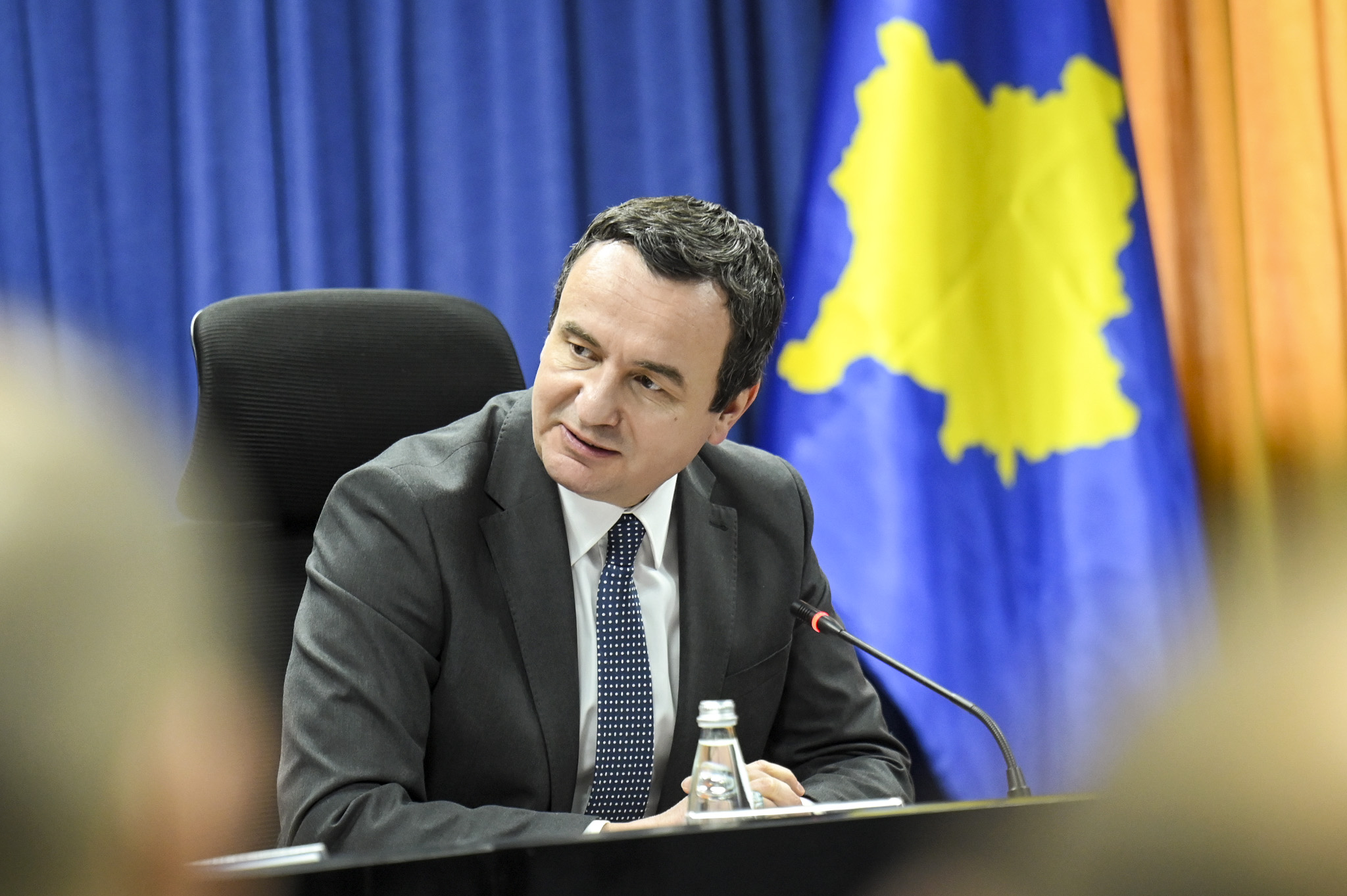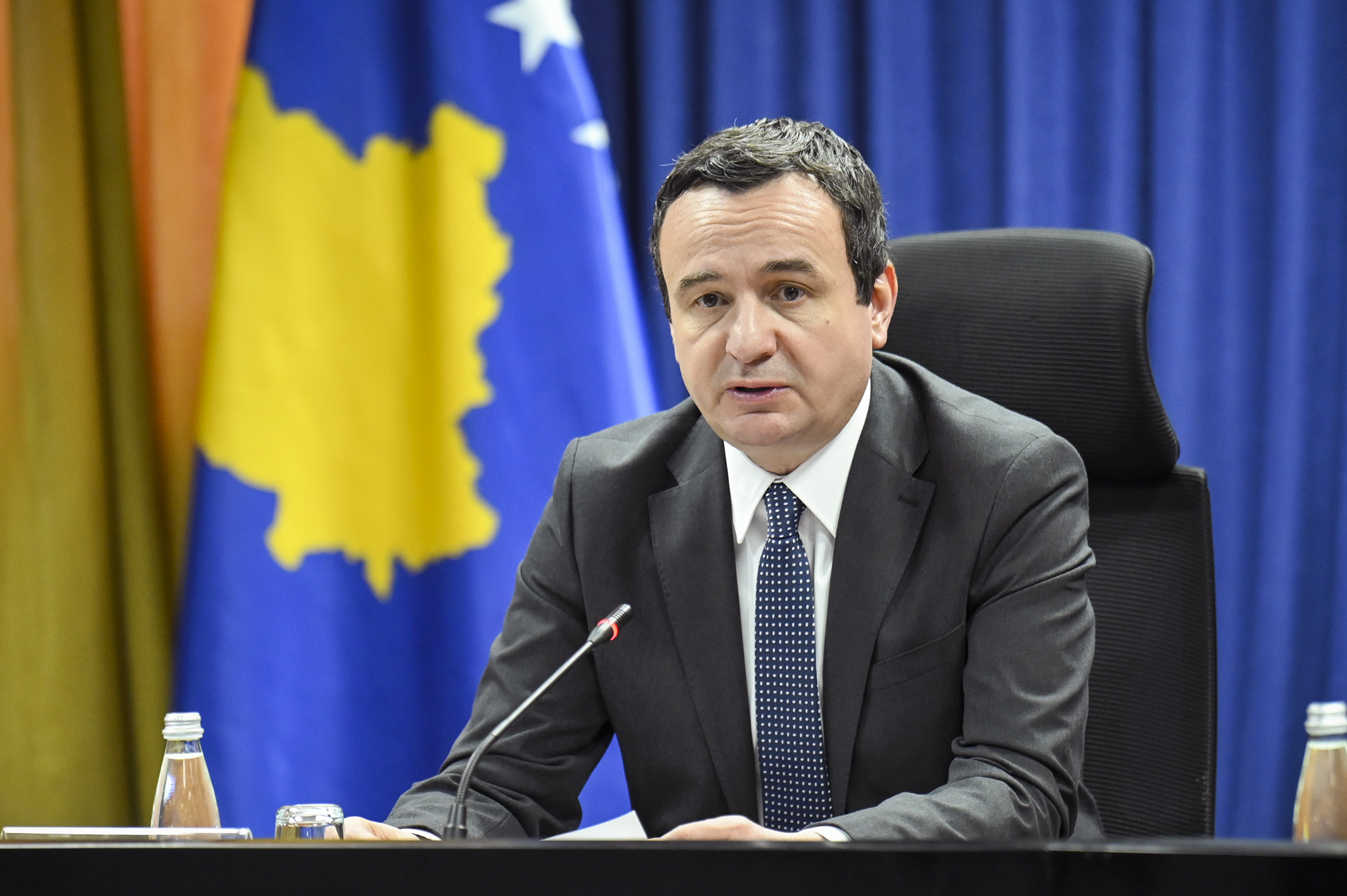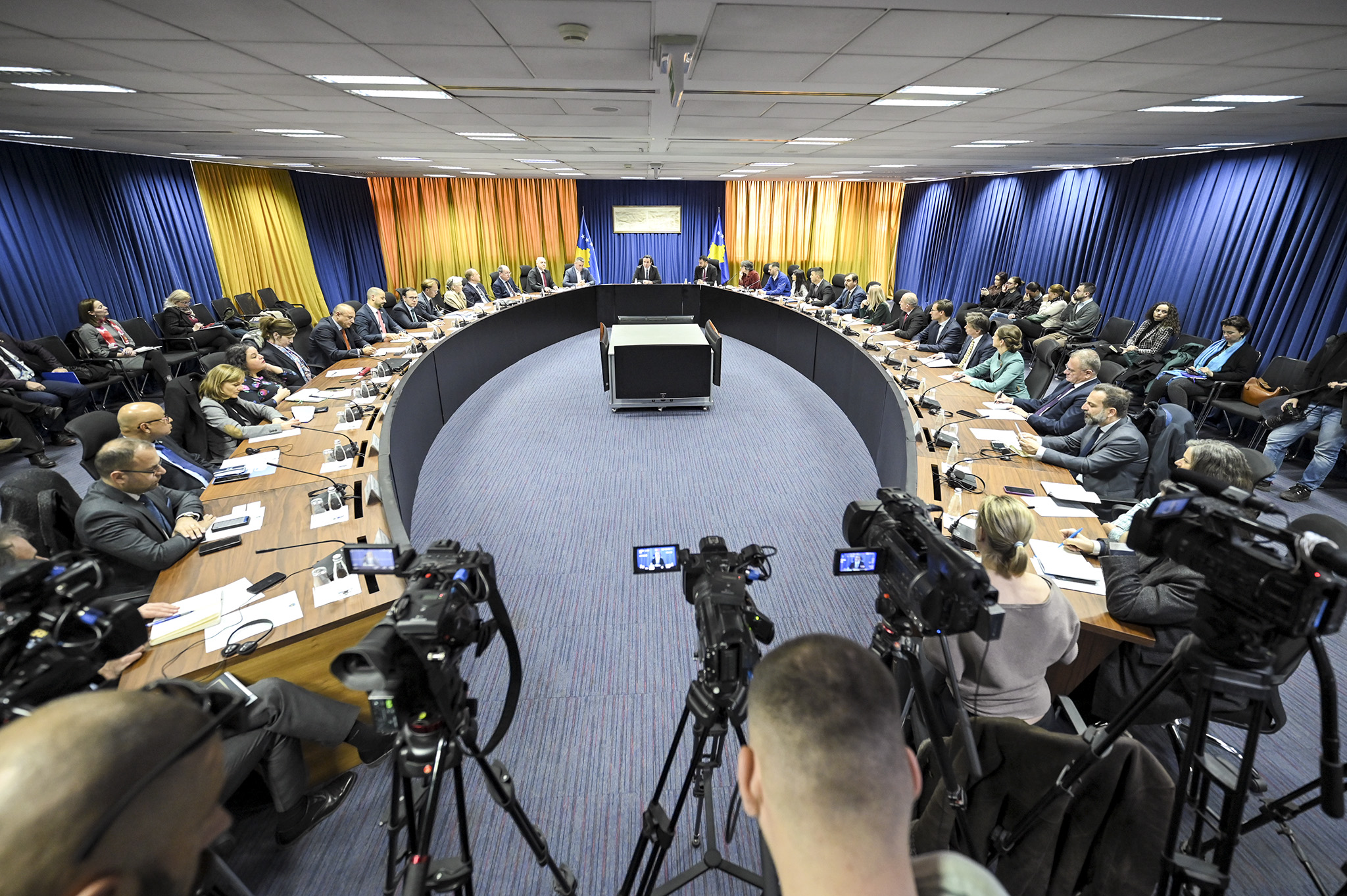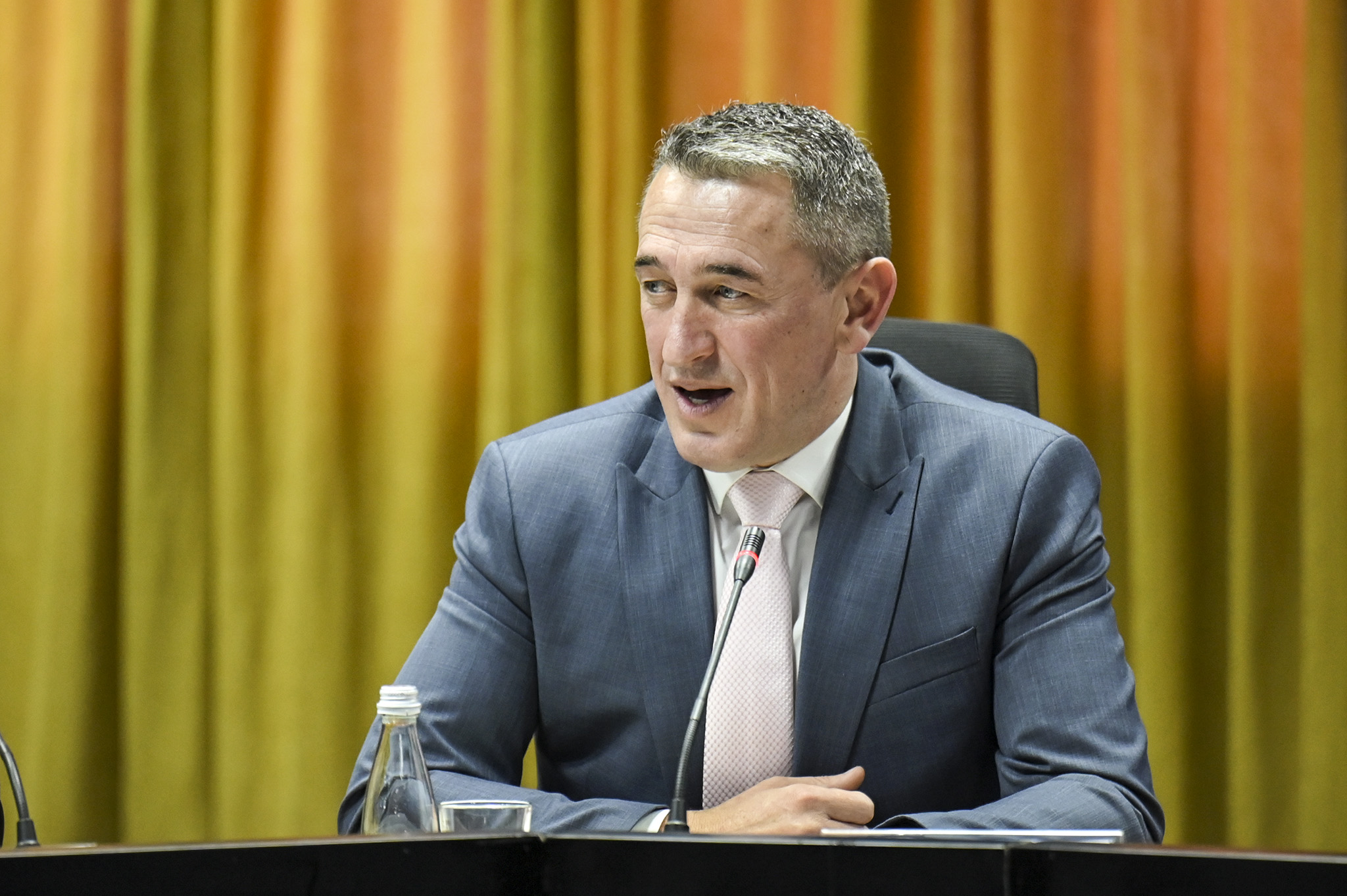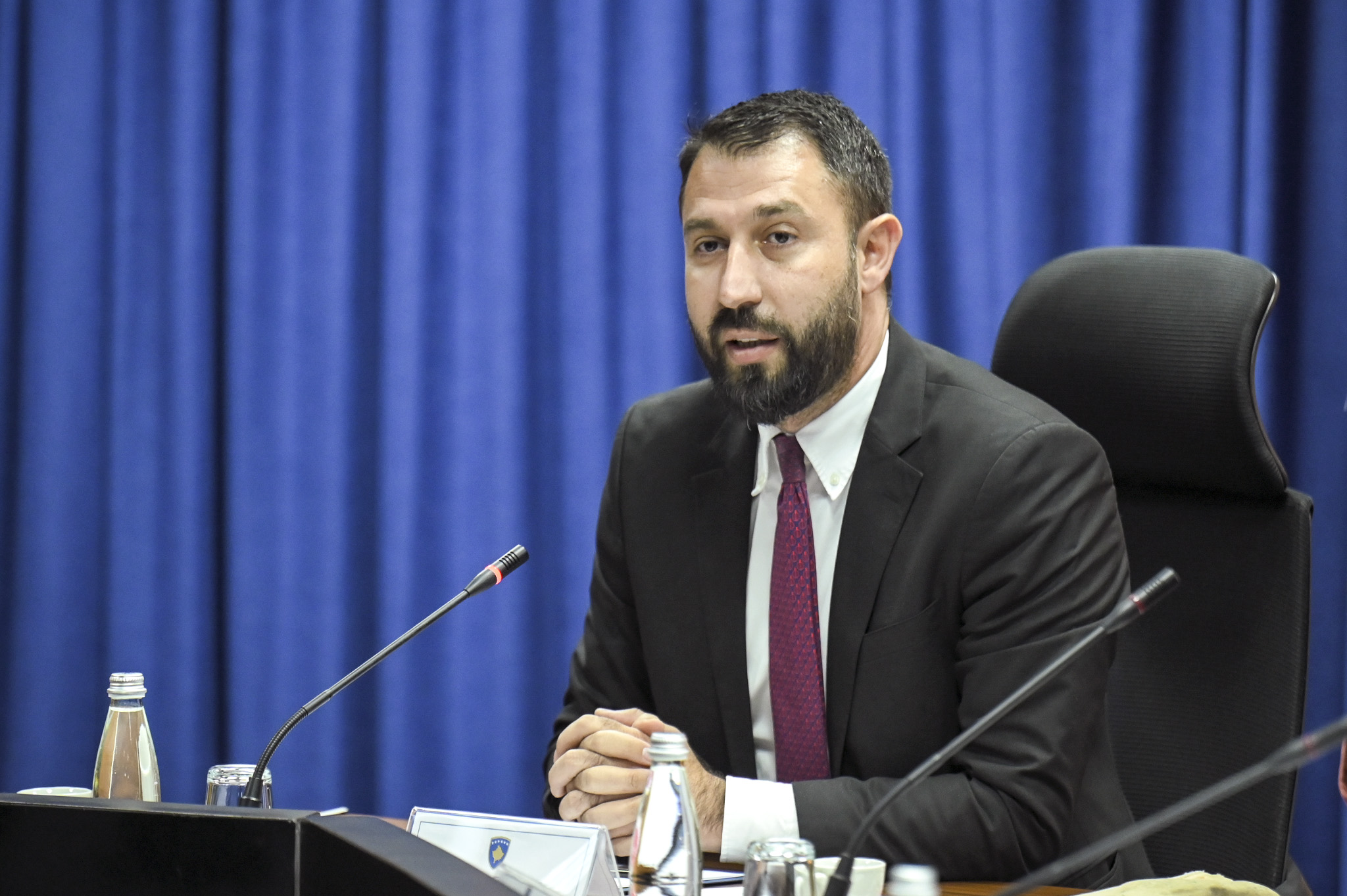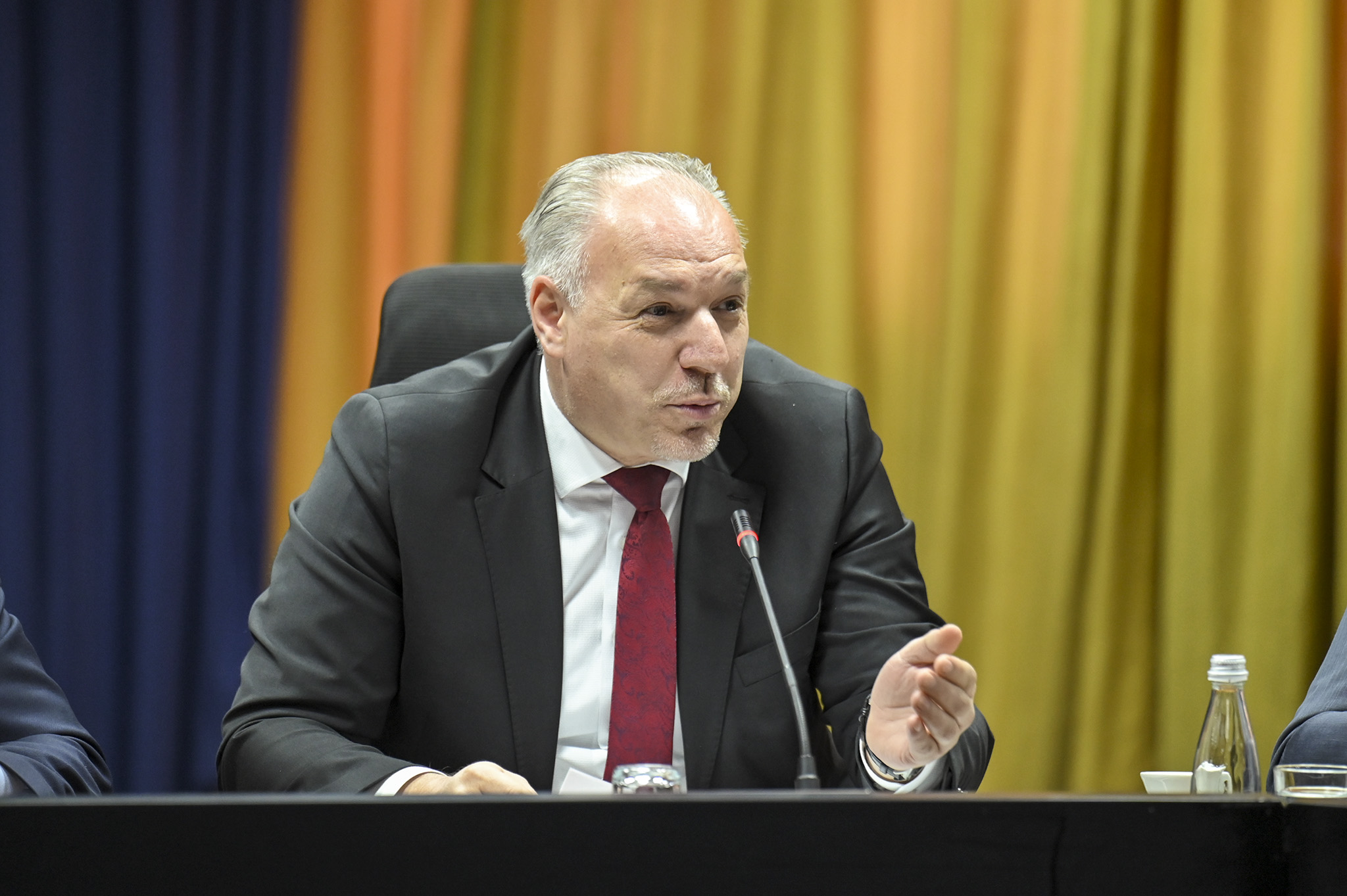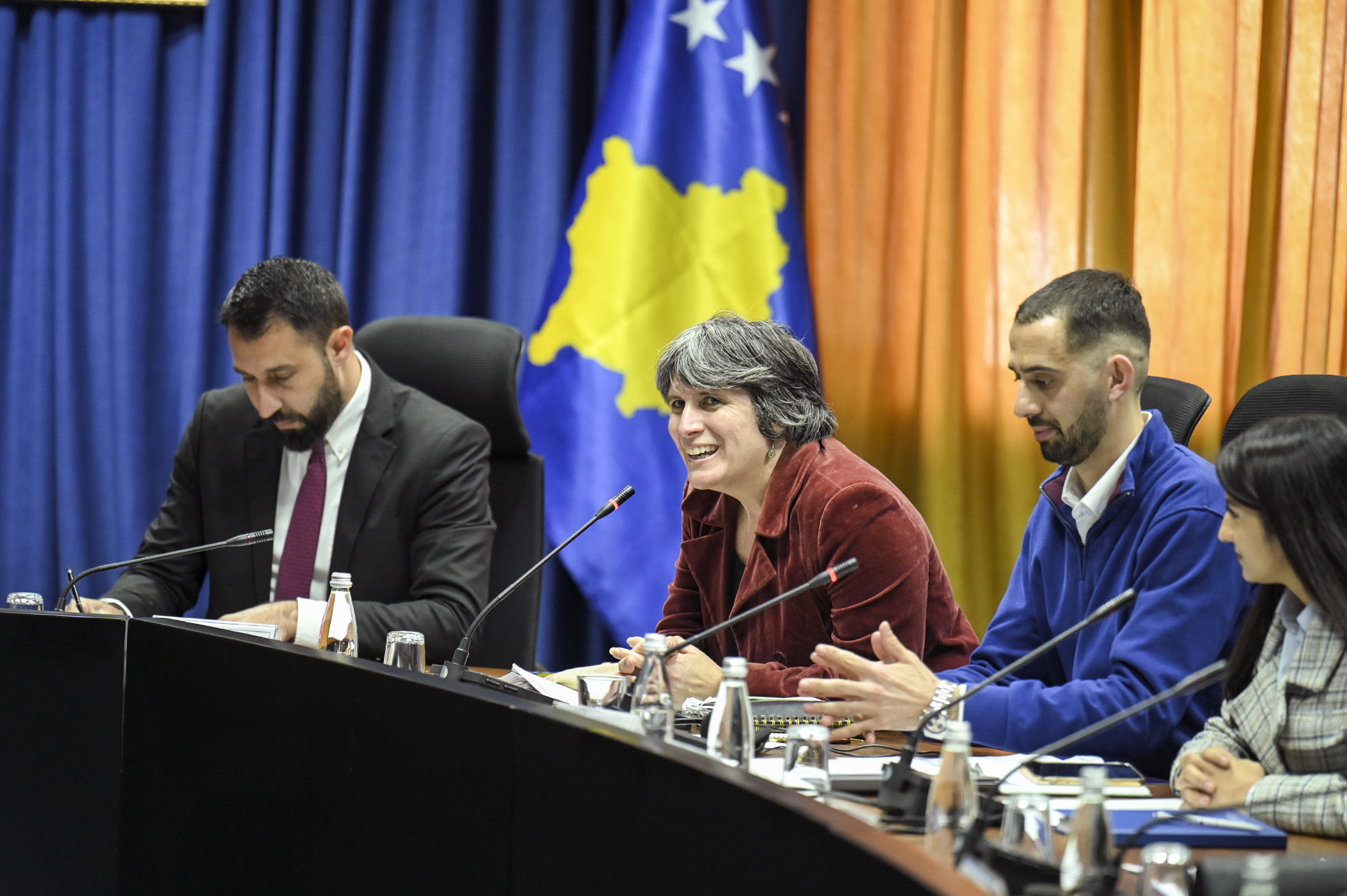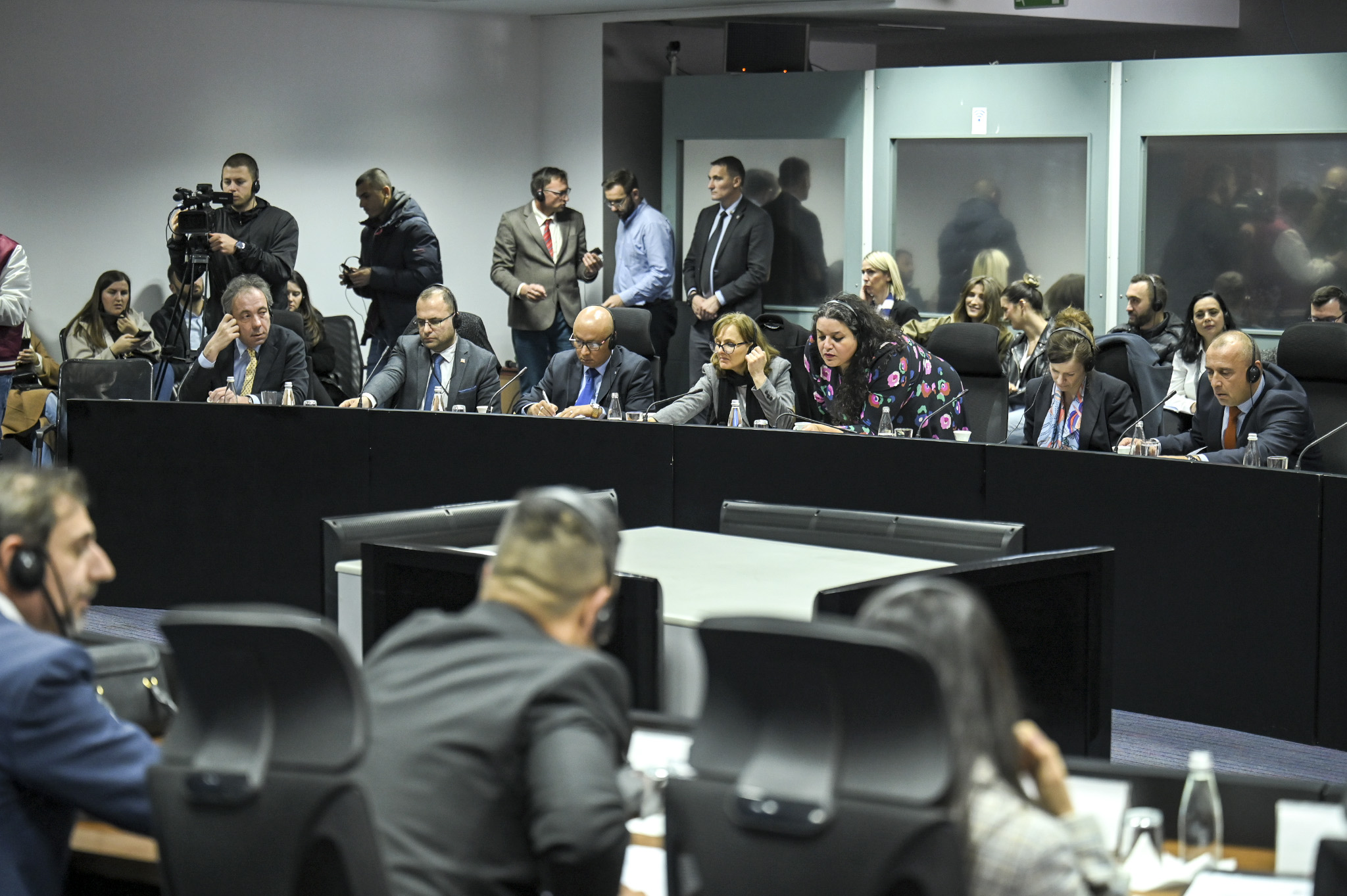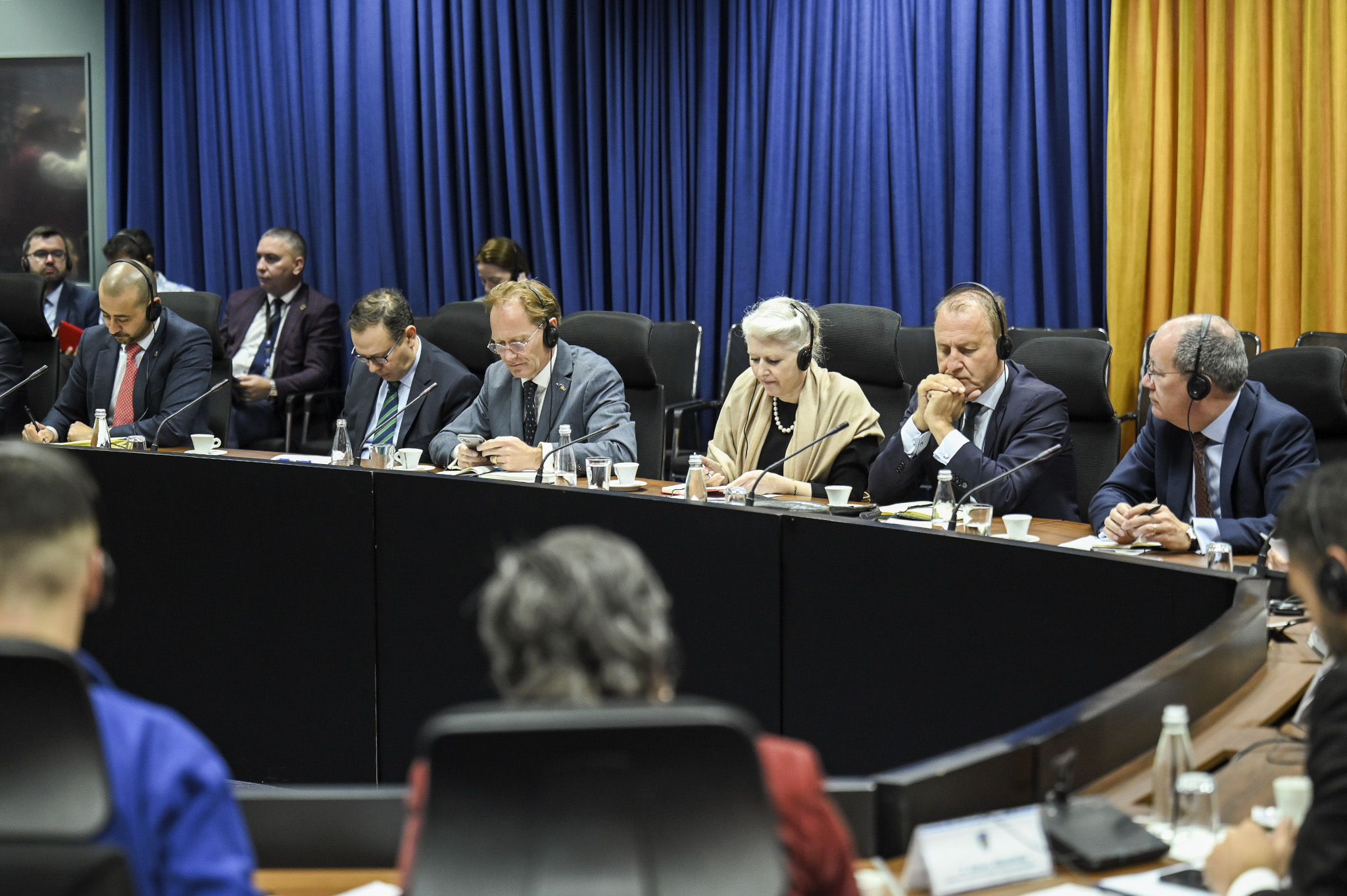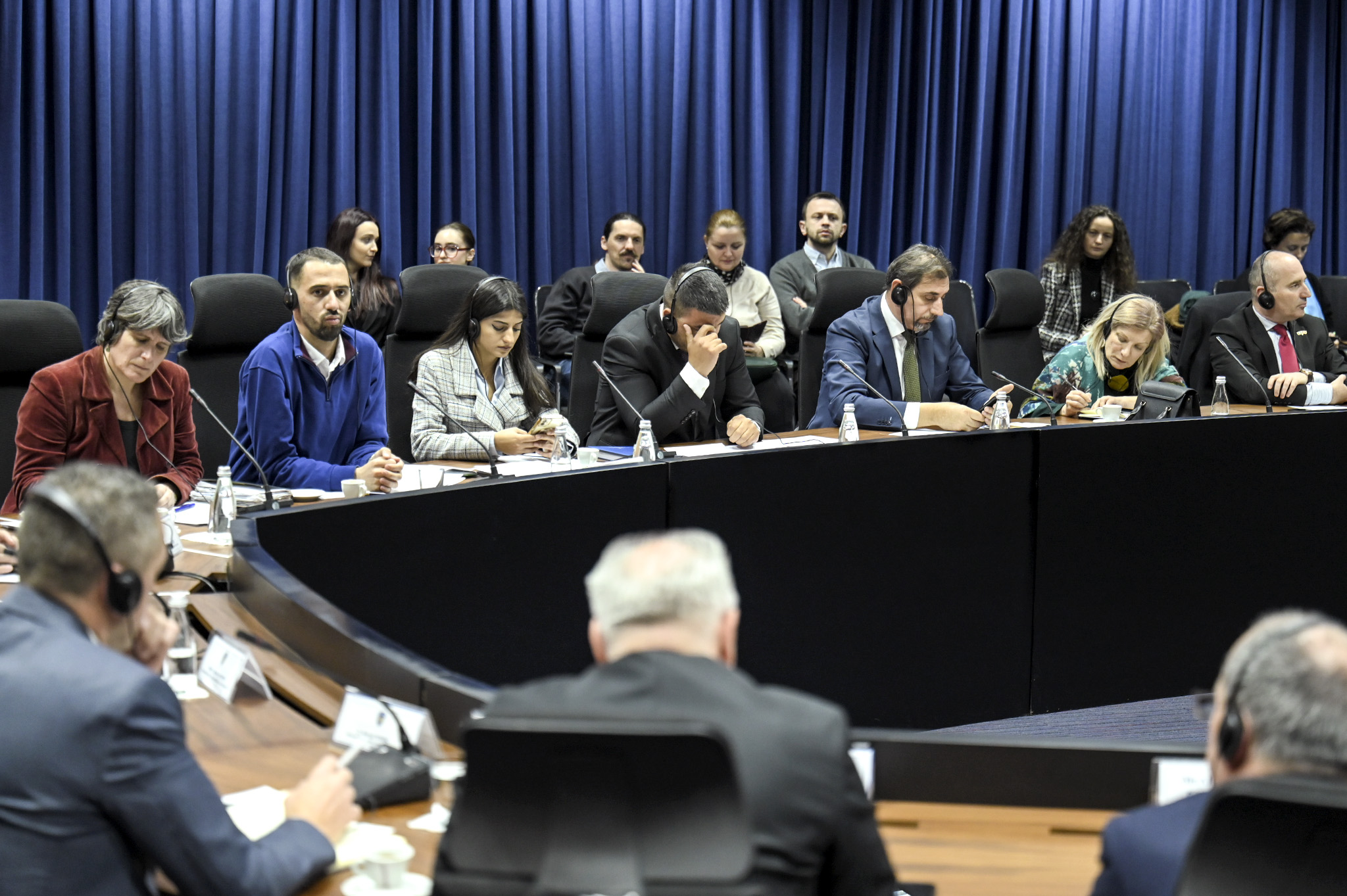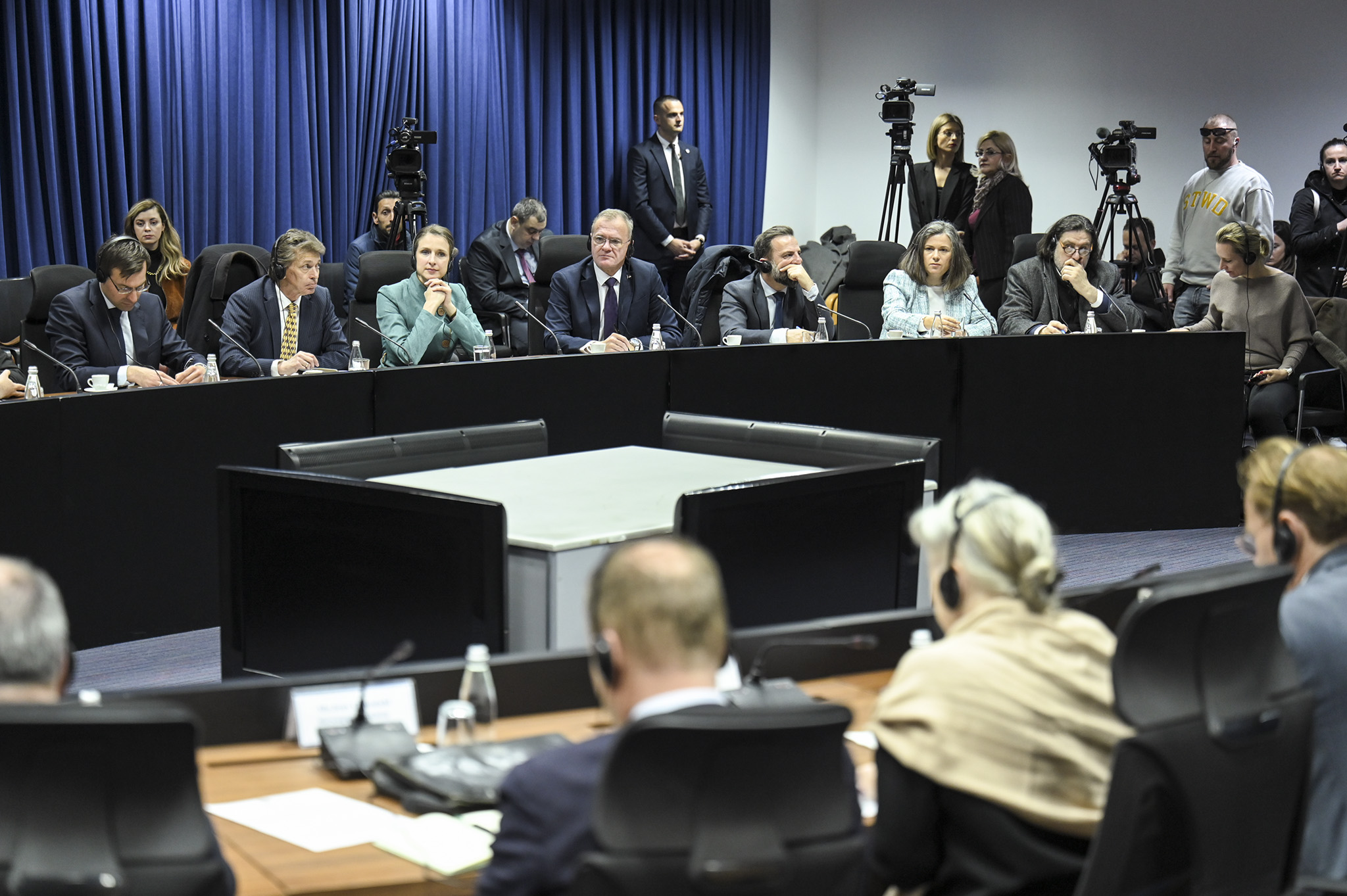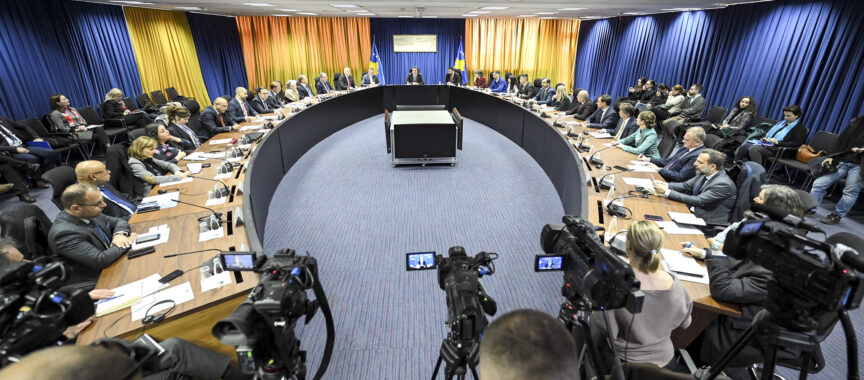Prishtina, 29 March, 2023
The Prime Minister of the Republic of Kosovo, Albin Kurti, participated in the conference on the coordination of donors for the non-majority community, organized by the Office for Community Affairs within the Office of the Prime Minister.
Prime Minister Kurti said that a lot has changed since the last meeting, which was held 6 months ago, and that since then the tables have continued with the non-majority communities in Kosovo – with the Croat, Goran and Bosniak communities, with representatives of the Ashkali community who mark the day of their flag and with the Turkish teachers in the schools of Pristina.
Furthermore, Prime Minister Kurti said that he constantly hears from the members of the community with whom he meets, how critical the need for employment is, therefore, he added, we have chosen as a topic for today the ways in which active measures of the labor market can help the communities of Kosovo.
He recalled a meeting he had with a young Goran man from Dragashi, a father of two children, and that his wife had a talent for handicrafts and wanted to start her own business, but they could not find funds. “Our new platform Superpuna offers employment opportunities, where our government subsidizes wages for 6 months for young people from all communities from 18 to 25 years old; something that I am satisfied that my cabinet was able to send information about these opportunities to that young unemployed couple from Dragashi”, said Prime Minister Kurti.
The Prime Minister mentioned that 500 scholarships have been provided for high school students from the Roma, Ashkali and Egyptian communities and 100 additional scholarships for students from these communities in public universities, who may become teachers in the future. The Office for Community Affairs is also offering 5 scholarships this year for students from non-majority communities to study in the Balkan studies program within the University of Pristina. This is a great way to gain the skills and qualifications that would enable you to work as one of the Albanian-Serbian translators you need for sure.
Our government has dealt with corruption and nepotism at every level and we want to open the doors to those who traditionally have not been represented in the labor market as much as they should, said Prime Minister Kurti.
Prime Minister Kurti’s complete speech:
Your Excellencies, Ambassadors,
Heads and deputy heads of Missions,
Minister Rašić, Minister Krasniqi, [Minister Damka],
Members of the Communities Consultative Committee,
Partners and colleagues,
I am very happy to see you back in the Government Building after we met together in this forum 6 months ago, to discuss how we can most effectively work together to support Kosova’s non-majority communities.
A lot has happened in these last six months for Kosova’s non-majority communities as for all Kosova’s citizens. I am particularly happy to see one change since we met in September: to have with us today the Minister for Communities and Returns, now Nenad Rašić.
Since we last met, I have continued my roundtables with non-majority communities in Kosova – with the Croatian, Gorani and Bosnian communities, with representatives of the Ashkali community marking their Flag Day, and with the Turkish teachers in Prishtina schools.
We have continued our internal dialogue with Kosova’s Serbian citizens through meetings with Serbian NGOs in Kosova, together with Deputy Prime Ministers and Ministers, and my visits to Serbian communities.
I remember in particular meeting one young Gorani man from Dragash. He’s a father of two with a wife who has a talent for handcrafts and who wants to start her own business but can’t find funding. Her husband is educated and speaks good english but cannot find a job. When we met in my office, I felt a powerful obligation to be able to tell him that there were options for him and his wife and other young couples in Kosova.
What we hear consistently from the community members we meet with is just how critical the need for employment is, and so we have chosen as the theme for today the ways that Active Labour Market Measures can help Kosova’s communities. We believe this is important because as well as economic growth, jobs bring families stability, and they offer dignity. Increased employment – and increased employability – is central to the pillars of our National Plan, both for Sustainable Economic Development, and for Equitable Human Development. The government has taken some additional practical steps to bring about positive change in this area, and some options for that young couple from Dragash, and we’ve seen how non-majority communities are benefiting. I will share some of these with you now, and hope that later on we can hear from your experience about the most effective ways we can bring about positive change in the employment of Kosova’s minorities.
We have offered opportunities to increase employability, especially for our non-majority communities. Such as the reactivisation of the Commission for the Verification of Diplomas for Serbian-speaking Kosovan citizens, which enables them to be employed in Kosova’s institutions;
also the recent government decision to establish a Public International Business College in Mitrovica, which has been supported by the EU, offers a unique higher education opportunity for all communities.
Our KODE project offers IT training for young people in an initiative run by the Ministry of Economy, together with the World Bank, has included young people from non-majority communities, and as the programme expands, it will include many more.
We have provided 500 scholarships for high school students from the Roma, Ashkali and Egyptian communities, and an additional 100 scholarships for students from these communities at public universities, who can become teachers in the future. The Office for Community Affairs is also offering 5 scholarships this year for students from non-majority communities to study at the Balkanistics Programme within the University of Prishtina. This is an excellent way to gain the skills and qualifications, that would enable work as one of the Albanian-Serbian translators surely needed.
However, we know that sometimes having the right skills is not enough to get a job. Our government has been tackling corruption and nepotism at every level, and we want to open doors to those who have not traditionally been represented in the labour market as much as they should have. In June last year we created an Inter-Institutional Team to Promote Roma, Ashkali and Egyptian Employment, led by Director Habit Hajredini and with representation from my cabinet, from across relevant ministries and civil society.
Members of this team have met with Kosova’s hospitals’ human resources directors, the University of Prishtina, the police, the Employment Agency and with many others. They have made additional outreach both directly and via community NGOs, to spread awareness about internships, recruitment drives and bursaries, including through our new twice-monthly bulletin of opportunities shared in Albanian, Serbian, Turkish and Roma. They have created a database of members of the Roma, Ashkali and Egyptian communities who have completed training and higher education programmes, to facilitate more targeted employment programmes in the future.
Other opportunities are paid internships by the Kosova Generation Unlimited initiative from the Ministry of Finance in partnership with Unicef; the YoungCell scheme in partnership with the EU that supports study abroad with a guarantee of 3 years paid work in Kosova’s institutions on return; the Stipendium Hungaricum scholarships through the Embassy of Hungary, and UNDP’s paid journalism internships.
Last year 104 Roma, Ashkali and Egyptians benefited from training at government Vocational Training Centres – an increase from just 34 the previous year. The Ministry for Communities and Returns worked last year on Community Stabilisation through creating 123 small and start-up businesses for non-majority communities in partnership with the EU and IOM. Of these, 48 were for the Serbian community, 27 for the Bosnian community, 21 for the Egyptian community, 10 for the Ashkali community, 5 for the Gorani community and 4 for the Roma community.
Through our ‘Government for Families’ measure, subsidising the salaries of job-seekers who are the only wage-earners in their families, we have helped many of Kosova’s non-majority communities, among them 115 Serbian families. And following the 32 grants awarded last year by the Office for Community Affairs for NGOs working on increasing employability and employment for non-majority communities, this year the Office of the Prime Minister has again allocated 300.000 euro for such grants.
Our new Superpuna platform provides job opportunities, with our government subsidizing salaries for 6 months for young people from all communities aged between 18 to 25; something I am pleased that my cabinet was able to send information about these opportunities to that young unemployed couple from Dragash.
Our national employment agency last year found 809 jobs for members of minority communities, including through Active Labour Market Measures. The previous year there were just 617 jobs found for members of minority communities, while the total number of jobs found through the agency remained almost exactly the same – meaning that year on year we have achieved a 31% increase in the number of jobs found for minority communities through the Agency. This year, these jobs represent 12.5% of the total jobs found by the Employment Agency.
So we have ideas for what needs to be done and we’ve demonstrated success. But, as the memory of the Dragash couple reminds me, the stakes are high, and the needs are huge but we know we can tackle them better together. We see that sometimes we can play a more powerful role in bringing people together, sharing best practice and articulating the needs we have seen and heard from our citizens. We hope that the information exchanged today will be helpful for your programming, and to inspire new ideas for all of us here today to enable positive change for minority community citizens who need it most.
Gorani Day will be celebrated in Dragash in May, and I am hoping that I can return and meet again with that young couple who last year were unemployed and felt like they were out of options. I want to be able to tell them that there are new opportunities all the time in a Kosova focused on jobs and justice. I am grateful for all we can do together to achieve this vision of Kosova
Thank you.
Last modified: March 30, 2023
